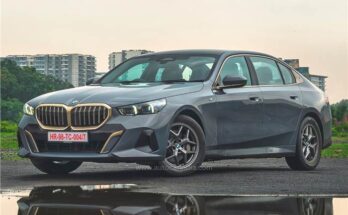First report: The Kiger CVT guise joins its manual cousin for the city grind.
Having two units of the same car in the Autocar long term fleet is rather rare. However, given that Renault updated the Kiger just 17 months after its debut, it made us wonder: what has changed? And more importantly, is it at all noticeable? Well, the first drive review sure answered some of those questions, but an exhaustive review always spills the remaining beans. And so, we welcome another Kiger Turbo to the fleet. But unlike the manual that Akbar has been driving, this one is a CVT, which should help take on Mumbai’s hustle and bustle.
First things first. These days, an automatic tends to have everyone on the team scrabbling for the keys. Save the manuals? No thanks! Mumbai’s traffic and the ever-under-development infrastructure mean the first two gears end up working a lot more than you do at your workplace, and, in that aspect, the lack of a clutch pedal is hugely appealing.
 CVT transmission isn’t the best, but is much more comfier than a manual.
CVT transmission isn’t the best, but is much more comfier than a manual.
That said, the CVT isn’t flawless. It hesitates off the line, though once up to speed, progress is linear. Mash the accelerator and you won’t get much urgency from the transmission. All this is accompanied by the boomy sound of the 1.0-litre turbo-petrol engine. There is a half-fix to this in the form of the drive modes. Choosing between Sport, Normal and Eco does yield a noticeable shift in performance. In Sport, the responses are much better and brisk overtakes, as a result, are effortless.
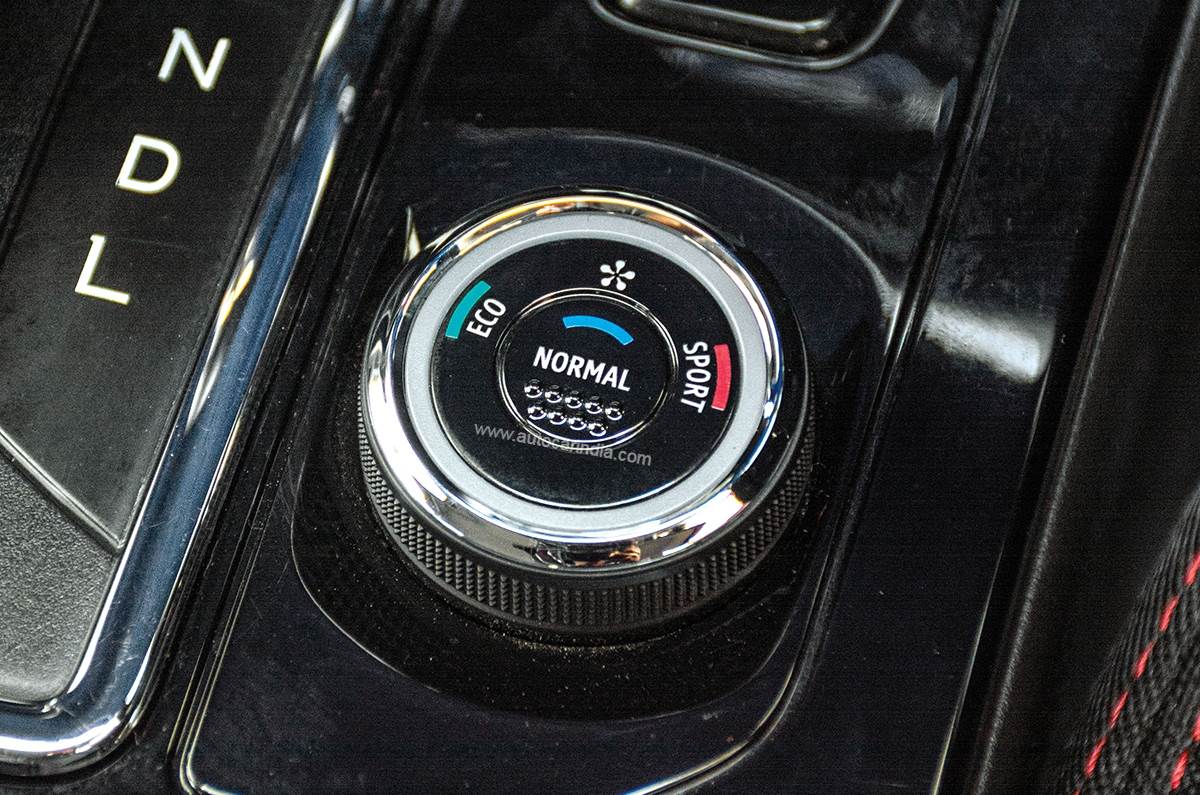 Drive modes change performance and response in a noticeable manner.
Drive modes change performance and response in a noticeable manner.
Sadly, the same cannot be said about the efficiency, as the Kiger’s one big drawback is the 7.4kpl I managed to squeeze out despite my best efforts. Feather-foot the accelerator, and plan every move in advance, and you just might get it near 9kpl, but one eye will constantly be on the MID rather than the road. That said, the efficiency displayed on the MID is quite close to the real-world number, so take that as an upside.
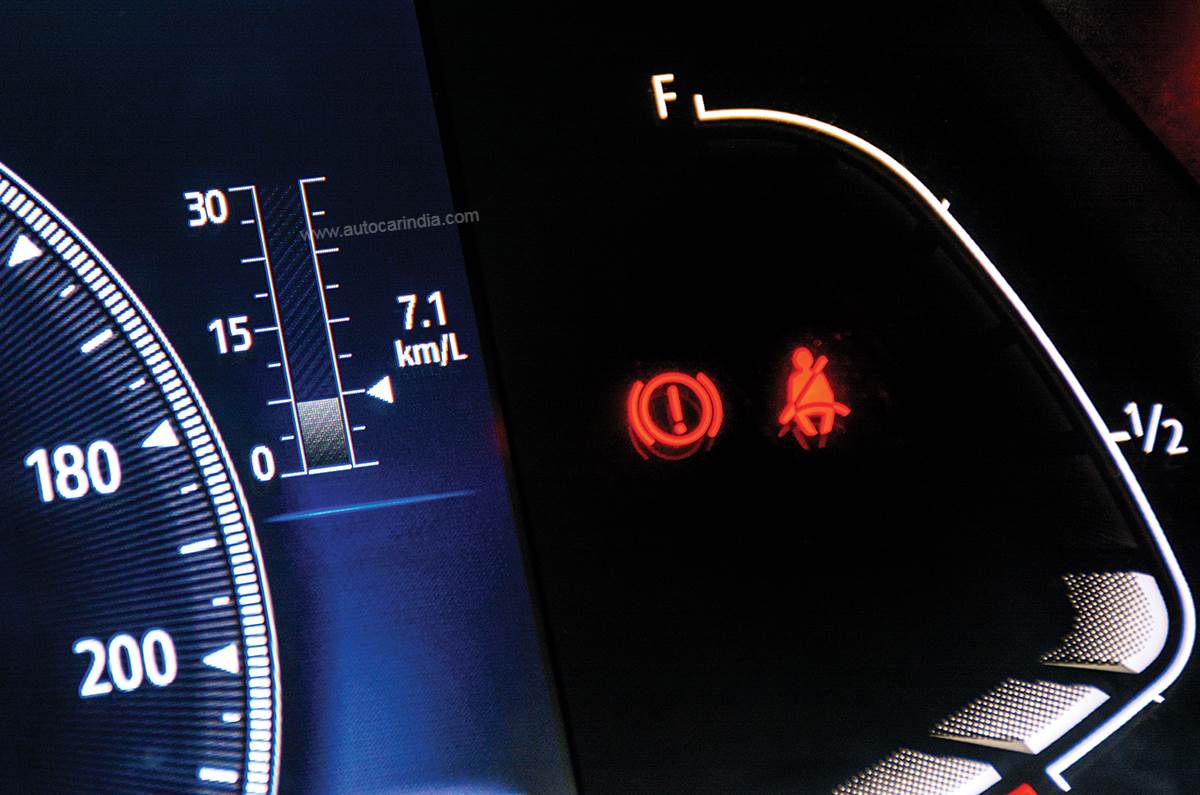 No matter how gentle you are on the accelerator, the efficiency in the city rarely crosses 8kpl.
No matter how gentle you are on the accelerator, the efficiency in the city rarely crosses 8kpl.
The engine, thankfully, is noticeably more refined and peppier than on the launch version, with a strong midrange that helps the Kiger hover around triple-digit speeds with ease. Then there is the features list, of which the most impressive is wireless Apple CarPlay. Something you still miss on high-end luxury cars is available on an affordable compact SUV, and that makes everything so much easier.
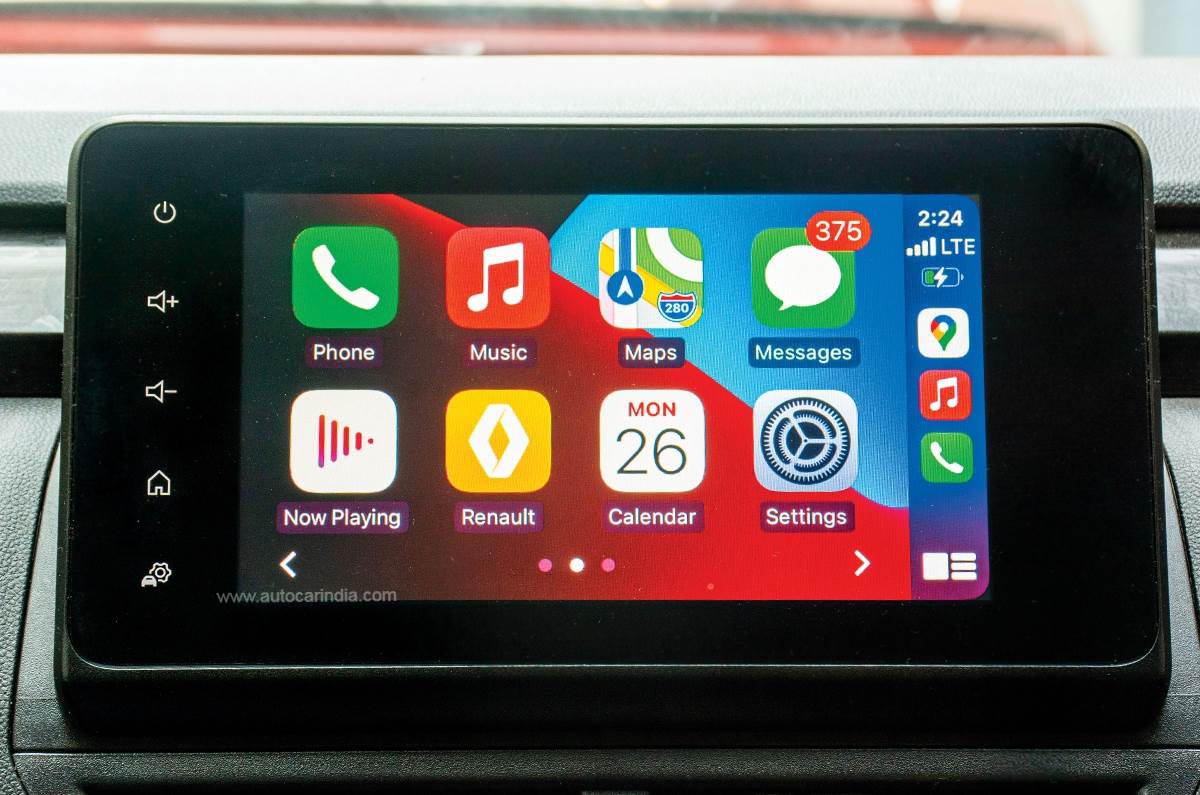 Wireless Apple CarPlay is hugely convenient and quick to respond.
Wireless Apple CarPlay is hugely convenient and quick to respond.
The key fob is flat and a lot more practical, the AC performance is very good, and there is also an L mode for the CVT that helps by dishing out maximum torque when the car is loaded up; although in the chaos of the city, it was rarely needed. No paddle shifters here, nor a manual mode, but that’s not a negative as the CVT is meant for maximum convenience, which means doing less. Some niggles have already cropped up though, primarily a squeaking sound from the steering wheel every time you turn to the left.
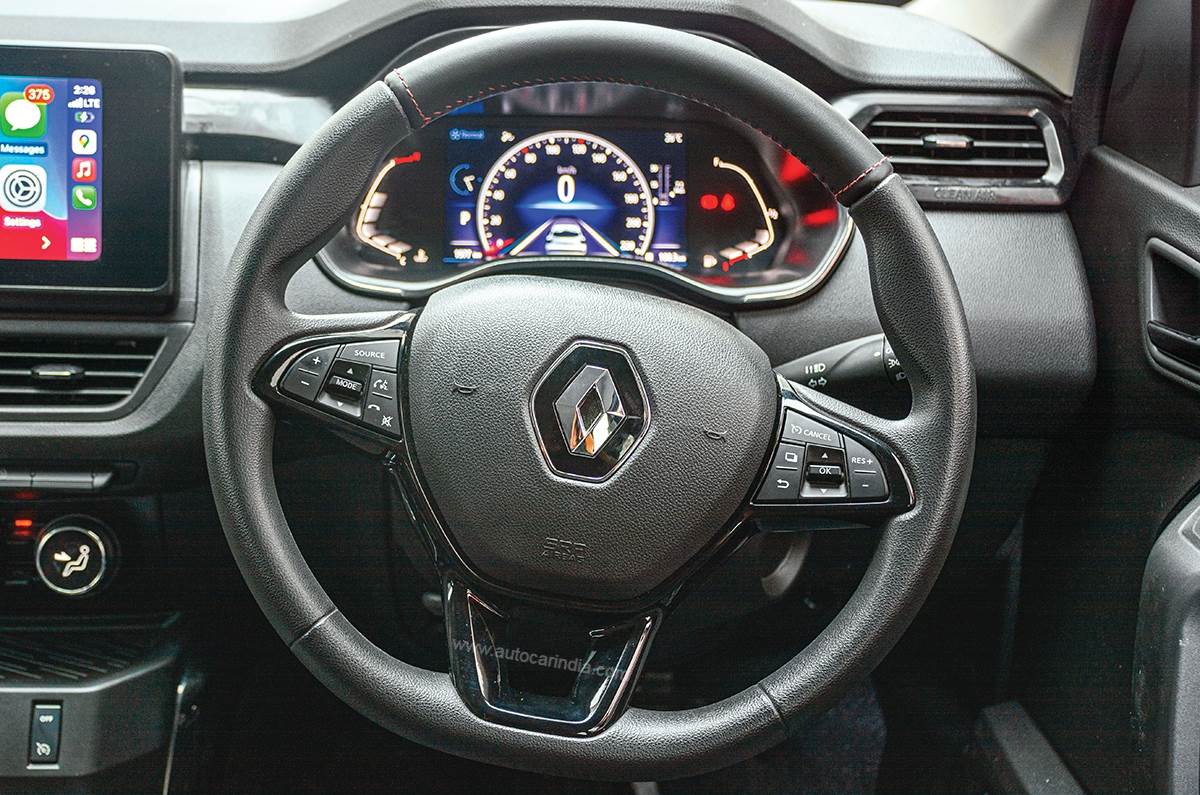 Steering wheel alignment is off the dead centre position.
Steering wheel alignment is off the dead centre position.
It’s presumably an easy fix, but then there is also the issue of its misalignment, which means the dead-centre position is now a bit off. Also, on some days, the rear-view camera fails to engage in reverse, and the screen does freeze up once in a while. However, there are positives like comfy seats, superb ride (typical of a Renault), and plenty of ground clearance to glide over big bumps. Now, the only challenge is to get that efficiency up somehow, check out the highway performance with a full load, and most importantly, tuck it away from the prying eyes of everyone with a manual long termer, especially Akbar.
Also see:
Renault Kiger RXZ Turbo long term review, 3,300km report
Source link

